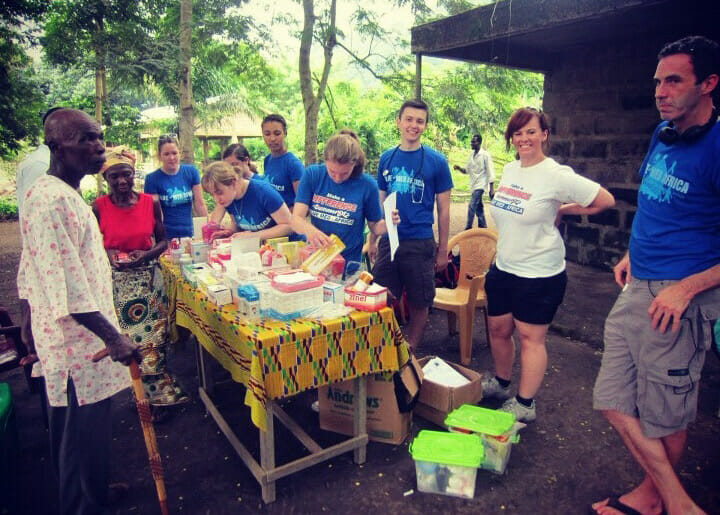Addressing Medical Needs in Rural Ghana with Blue-Med Africa

Today's guest post is written by Laura, a second year pre-med student from the UK. During the summer of 2012 she chose to volunteer with Blue-Med Africa in Ghana, and volunteered on several medical projects while out there. She writes for Degree Jungle, a resource for college students.
Across the world, billions of people suffer from health inequalities that lead to untimely and unreasonable deaths. In the developing world health care is not accessible for many, and the basic living standards needed in order to fight off diseases can also not be achieved. During the summer of 2012 I chose to broaden my view of health care across the world by spending a month in Ghana. During my time there I worked on several medical projects, the majority of which focused on delivering care to those in rural areas who could not access it.
As an international volunteer, one of my main areas of focus was medical outreach. The areas our group visited consisted of derelict buildings which we would use to set up our stations. Those who came to the make-shift clinics we set up would often not see a doctor or nurse for months, and so the health of the patients there would be dire. Our first port of call would be to take basic vital signs, before passing the patients over to a nurse for a consultation, who would then refer them to our emergency pharmacy. Over the space of five hours we attended to hundreds of men, women and children with diseases like cholera, malaria and severe hypertension. The majority of the children who saw us would have severe fevers, and without the right assistance would have contributed to Ghana's child mortality rate.
While visiting rural communities as a part of our medical outreach program was beneficial for a short while, it left many of us wondering what the real long-term benefits would be. For those who received treatment for diseases like malaria, no real follow-up appointments were available, and so there was no way to ascertain whether what we had done was effective. Unfortunately, many rural residents across Ghana cannot access treatment that is any better. Health care is not free here, and so if they cannot afford basic fees and a taxi fare to the nearest hospital, they have to suffer. We saw one example of this in its extremes during our last medical outreach, where one girl had a wound across her forehead that required stitches, but could not afford the $10 to reach the hospital and pay for treatment. In the end, we paid for her.
Throughout my time in Ghana, I have also assisted on maternity wards without basic facilities, and in a leprosy village where the residents never leave. During these times I really felt as though my presence made a minor difference, but I am still aware that a long-term solution needs to be found in order for care to be fair and accessible. Overall, my time with Blue-Med Africa in Ghana has made me realize that the world needs to do more to make access to care equal, otherwise injustices will continue.
